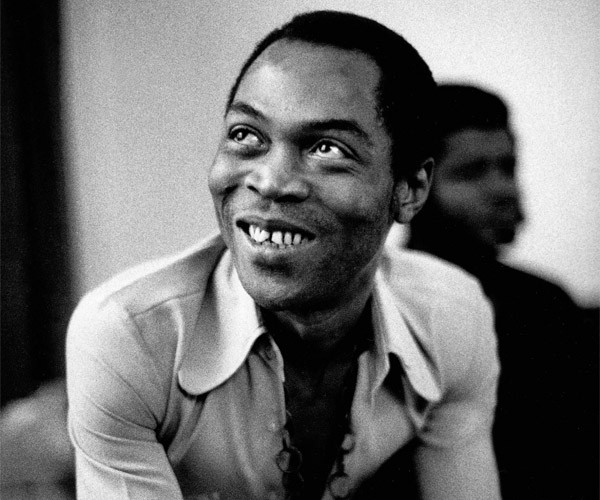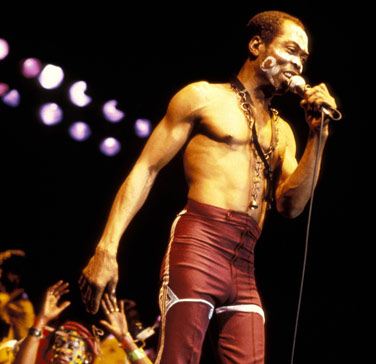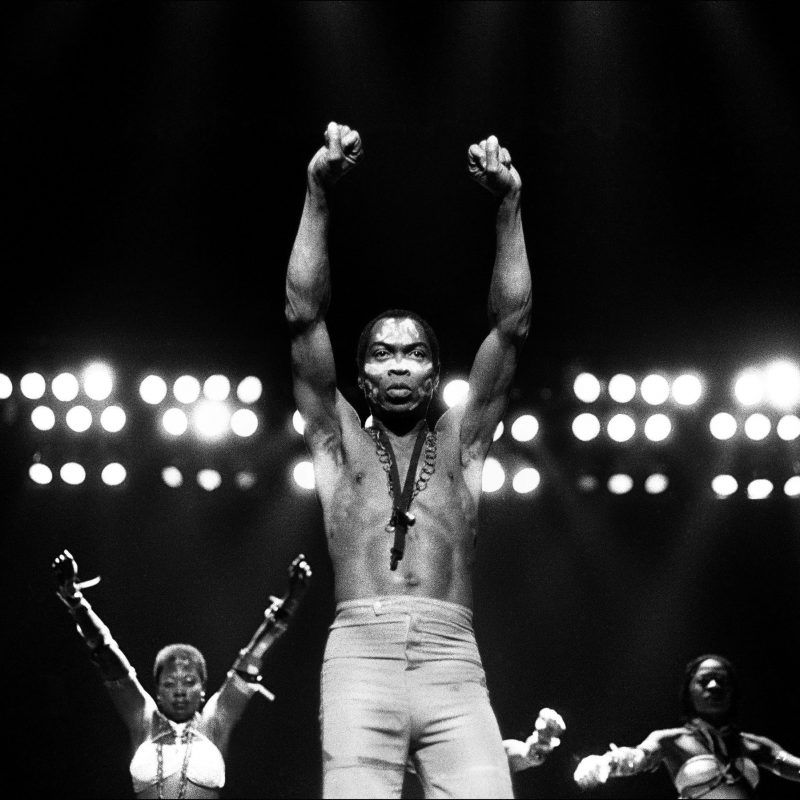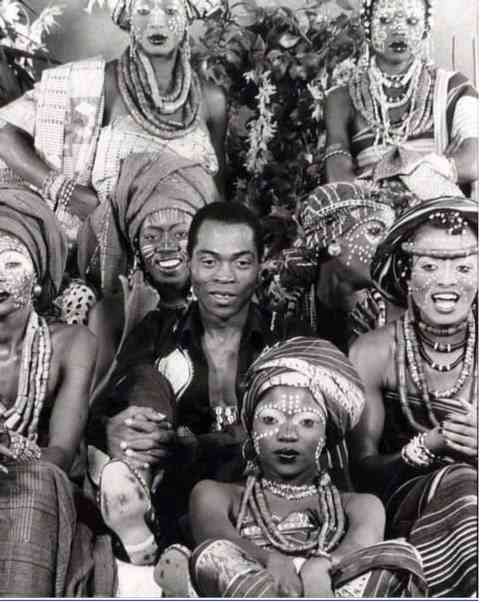Introduction
Have you ever heard music that electrifies your soul, inspires social change, and bridges cultural divides all at once? If you have, chances are you’ve encountered the genius of Fela Kuti. Known as the pioneer of Afrobeat, Fela Kuti was more than just a musician—he was a revolutionary, a cultural icon, and a voice for the oppressed. In this engaging and comprehensive journey, we’ll explore the life and legacy of Fela Kuti, delving into his music, activism, and enduring impact on the world.
Early Life and Influences

Childhood and Family Background
Fela Anikulapo Kuti was born on October 15, 1938, in Abeokuta, Nigeria, into a family that valued education and activism. His mother, Funmilayo Ransome-Kuti, was a prominent feminist and anti-colonial activist, while his father, Reverend Israel Oludotun Ransome-Kuti, was a Protestant minister and educator. Growing up in such an environment, young Fela was exposed to the ideas of social justice and cultural pride from an early age.
Education and Musical Beginnings
Fela was sent to London in 1958 to study medicine but, driven by his passion for music, he switched to studying music at the Trinity College of Music. It was here that Fela’s journey as a musician truly began. Influenced by jazz, highlife, and the emerging soul and funk sounds from America, Fela started to develop his unique musical style.
The Birth of Afrobeat

Early Bands and Musical Evolution
After completing his studies, Fela returned to Nigeria and formed the band Koola Lobitos, which played a fusion of jazz and highlife. However, it was during his trip to the United States in 1969 that Fela encountered the Black Power movement, which profoundly influenced his music and political views. Inspired by the likes of Malcolm X and the Black Panthers, Fela’s music began to take on a more radical and socially conscious tone.
The Creation of Afrobeat
Afrobeat, the genre Fela created, is a rich blend of traditional African rhythms, jazz, highlife, funk, and chanted vocals, all tied together with complex, polyrhythmic structures. Fela’s music was characterized by its extended grooves, powerful brass sections, and socially charged lyrics. His songs often exceeded ten minutes, allowing for improvisation and deep, hypnotic rhythms.
Fela’s Activism and Social Impact
Political Lyrics and Themes
Fela’s music was not just for entertainment—it was a weapon against oppression and injustice. His lyrics addressed a wide range of issues, from government corruption and police brutality to cultural imperialism and economic exploitation. Songs like “Zombie,” “Sorrow, Tears and Blood,” and “Coffin for Head of State” became anthems of resistance.
Kalakuta Republic
In 1970, Fela declared his compound, the Kalakuta Republic, independent from the Nigerian state. This commune housed his family, band members, and various followers. It was also the headquarters for his band, Africa ’70, and a place where he could freely express his revolutionary ideas. The Kalakuta Republic became a symbol of defiance and a hub for activism.
The Shrine: Fela’s Musical Sanctuary

Establishment of the Shrine
Fela established the Shrine, a nightclub and performance space in Lagos, where he played nightly shows that were part concert, part political rally. The Shrine was a place where people could come together to enjoy music and engage in discussions about social issues. It was here that Fela’s magnetic stage presence and powerful performances solidified his status as a cultural icon.
Performances and Atmosphere
A typical night at the Shrine was a sensory experience. The air was thick with the smell of marijuana, the rhythms were intoxicating, and Fela’s performances were electrifying. He would often perform for hours, blending music with political commentary, dancing, and engaging the audience in call-and-response chants. The Shrine was not just a venue—it was a movement.
Persecution and Struggles
Clashes with the Government
Fela’s outspoken criticism of the Nigerian government made him a target for persecution. His Kalakuta Republic was raided multiple times, and he was frequently arrested and beaten. The most infamous raid occurred in 1977 when over a thousand soldiers attacked the compound, beating Fela and his followers and burning the Kalakuta Republic to the ground.
Imprisonment and Torture
Despite the constant harassment, Fela remained undeterred. He was imprisoned several times on various charges, including possession of marijuana and currency smuggling. During his imprisonment, he was subjected to brutal torture, but he used his experiences to fuel his music and activism. His resilience in the face of oppression made him a hero to many.
Personal Life and Controversies

Marriages and Family
Fela’s personal life was as unconventional as his music. He married 27 women, many of whom were his dancers, in a single ceremony in 1978. Although he later reduced the number of his wives, this act was a statement against traditional norms and further solidified his reputation as a radical.
Health Issues and Final Years
In the 1980s and 1990s, Fela’s health began to decline, partly due to the toll taken by years of persecution and imprisonment. Despite his declining health, he continued to perform and release music. He was diagnosed with AIDS in the mid-1990s, a fact that was publicly announced only after his death on August 2, 1997.
Fela’s Musical Legacy
Influence on Global Music
Fela Kuti’s influence extends far beyond Nigeria and Africa. His innovative fusion of traditional African sounds with contemporary genres paved the way for countless artists worldwide. Musicians like Paul McCartney, Brian Eno, and David Byrne have cited Fela as a major influence. His music continues to inspire new generations of artists across various genres.
The Rise of Afrobeat
Afrobeat has grown into a global phenomenon, with contemporary artists like Burna Boy, Wizkid, and Davido drawing on Fela’s legacy to create music that resonates with audiences worldwide. Fela’s sons, Femi and Seun Kuti, have also carried on his legacy, performing Afrobeat music and advocating for social change.
Cultural and Social Impact
Fela as a Symbol of Resistance
Fela Kuti remains a symbol of resistance and a voice for the marginalized. His fearless stance against corruption and injustice continues to inspire activists and ordinary people alike. His life and music are a testament to the power of art as a tool for social change.
The Fela Kuti Legacy Foundation
The Fela Kuti Legacy Foundation, established by his family, works to preserve and promote Fela’s legacy. The foundation organizes events, educational programs, and exhibitions to keep Fela’s spirit alive and educate people about his contributions to music and activism.
Fela in Popular Culture
Biographies and Documentaries
Fela’s life has been the subject of numerous biographies and documentaries, each offering a unique perspective on his complex persona. The Broadway musical “FELA!” brought his story to a global audience, blending his music with a powerful narrative about his life and struggles.
Films and Books
Films like “Finding Fela” and books such as “Fela: This Bitch of a Life” provide in-depth explorations of Fela’s life, shedding light on his contributions to music and his impact on society. These works ensure that Fela’s story continues to be told and appreciated by new audiences.
The Fela Kuti Archive
Preserving Fela’s Music
Efforts to preserve Fela’s vast catalog of music are ongoing. The Fela Kuti Archive collects and digitizes recordings, ensuring that his music remains accessible to future generations. This archive is a treasure trove for fans and scholars alike, offering insights into the evolution of Afrobeat and Fela’s creative process.
Educational Initiatives
The archive also supports educational initiatives, including workshops, lectures, and collaborations with schools and universities. By sharing Fela’s music and message, these programs aim to inspire young people to think critically about social issues and use their creativity for positive change.
Conclusion
Fela Kuti’s life and legacy are a testament to the transformative power of music and the enduring impact of one man’s unwavering commitment to justice and cultural pride. His music continues to resonate with audiences around the world, inspiring new generations of artists and activists. As we celebrate Fela’s contributions, let us also remember the lessons he taught us about the importance of speaking out against oppression and using our voices to effect change. Fela Kuti was more than a musician—he was a revolutionary, a cultural icon, and a symbol of resistance. His legacy lives on, reminding us that through art, we can challenge the status quo and create a better world.
FAQs
Fela Kuti was a Nigerian musician, composer, and activist known as the pioneer of Afrobeat. He used his music to address social and political issues, becoming a symbol of resistance and cultural pride.
Afrobeat is a genre of music created by Fela Kuti, characterized by a fusion of traditional African rhythms, jazz, highlife, funk, and chanted vocals. It features complex polyrhythms, extended grooves, and socially conscious lyrics.
Fela Kuti was influenced by a variety of musical genres, including jazz, highlife, and funk. His political views were shaped by his experiences in Nigeria and his exposure to the Black Power movement during a trip to the United States.
Fela Kuti used his music as a platform to criticize government corruption, police brutality, and social injustices in Nigeria. His outspoken activism led to frequent clashes with the authorities, but it also inspired many Nigerians to demand accountability and change. His fearless stance made him a hero to many and a thorn in the side of those in power.
The Kalakuta Republic was a commune and recording studio declared independent from Nigeria by Fela Kuti. It served as his home, headquarters for his band, and a sanctuary for his followers. The compound symbolized Fela’s defiance against government oppression and his commitment to creating a space for artistic and social freedom.
